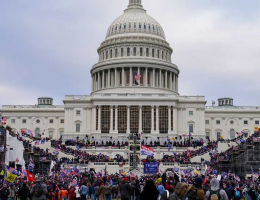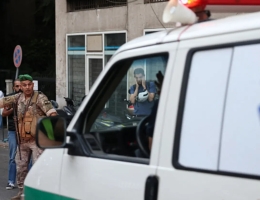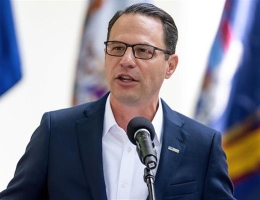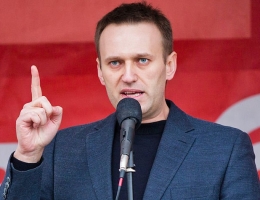Testimonies from Officers from Jan 6 Capital Attack
Capitol Police Officer Describes Fighting 'Hand to Hand, Inch by Inch' in Jan. 6 Testimony
WASHINGTON—Police officers who defended the Capitol on Jan. 6 described a harrowing confrontation with rioters, in testimony at a House select committee’s first public hearing Tuesday.
The hearing represents the beginnings of the committee’s efforts to investigate the events on Jan. 6, when then-President Donald Trump’s supporters stormed the U.S. Capitol, temporarily interrupting the certification of President Biden’s victory in the November election over Mr. Trump.
Capitol Police officer Aquilino Gonell said that he and fellow officers were beaten repeatedly and that he thought he would die. “We fought hand to hand, inch by inch,” he testified.
Mr. Gonell said that he is troubled by any effort to play down the severity of the attack. “There is a continuous and shocking attempt to ignore or try to destroy the truth of what truly happened that day, and to whitewash the facts,” he said.
The panel has been the subject of bitter partisan divisions. Most Republicans voted against both the formation of the panel and a previous effort to establish a bipartisan commission, pointing to existing congressional and law enforcement probes.
The Democratic-led panel’s chairman, Rep. Bennie Thompson (D., Miss.) said that the committee’s work is necessary because the threat hasn’t gone away. “We know that efforts to subvert our democracy are ongoing,” Mr. Thompson said at the start of the hearing.
The panel plans to go beyond security failures to look at communications between Congress and the executive branch and examine the role of individuals in the events. Mr. Thompson has said the panel won’t hesitate to subpoena members of Congress or Mr. Trump and will try to enforce the subpoenas in court if necessary.
Four law-enforcement officers are testifying Tuesday: Mr. Gonell and Harry Dunn of the Capitol Police, and Michael Fanone and Daniel Hodges from Washington, D.C.’s Metropolitan Police Department.
The officers testifying have spoken publicly before about the Jan. 6 attack. But by bringing them before the select committee, Democrats hope to bring more attention to what rank-and-file law-enforcement officers endured and the violence of the riot.
Last week, Democratic and Republican party leaders clashed over the panel’s makeup. The panel comprises seven Democrats and two Republicans picked by Speaker Nancy Pelosi (D., Calif.): Reps. Liz Cheney of Wyoming and Adam Kinzinger of Illinois, both of whom had voted to impeach Mr. Trump for inciting insurrection.
Ms. Cheney delivered the second opening statement, signaling that she is taking a prominent role on the committee. “We cannot leave the violence of Jan. 6—and its causes—uninvestigated,” she said.
Mrs. Pelosi rejected two appointees chosen by House Minority Leader Kevin McCarthy (R., Calif.): Rep. Jim Banks (R., Ind.), chairman of the conservative Republican Study Committee, and Rep. Jim Jordan (R., Ohio), the top Republican on the House Judiciary Committee. Mr. McCarthy pulled his other three selections in response and said House Republicans will conduct their own investigation.
House GOP lawmakers held a press conference before the hearing to accuse Mrs. Pelosi of being responsible for the security failures on Jan. 6, and of refusing to answer questions about it.
“Unfortunately Speaker Pelosi will only pick people onto the committee that will ask the questions she wants to ask,” Mr. McCarthy said. “That becomes a failed committee and a failed report, a sham no one can believe.”
Mrs. Pelosi’s office said that the Capitol Police Board and congressional committees are responsible for overseeing the Capitol Police, not the speaker herself.
Mr. Trump, who has denied wrongdoing, was impeached in the House but acquitted in the Senate. He has slammed the select committee as highly partisan and has suggested Mrs. Pelosi should investigate herself.
About 140 Capitol and D.C. police officers were injured on Jan. 6 while defending Congress, the Capitol Police union previously said. Some officers say that months later they are still suffering physical and mental harm related to the attack.
One Capitol Police officer was assaulted during the attack and suffered a stroke. He died the day after the riot of natural causes, according to the medical examiner’s office in Washington, D.C. Two other officers died by suicide after responding to the riot, officials have said.
The Wall Street Journal






.jpg)

.jpg)
